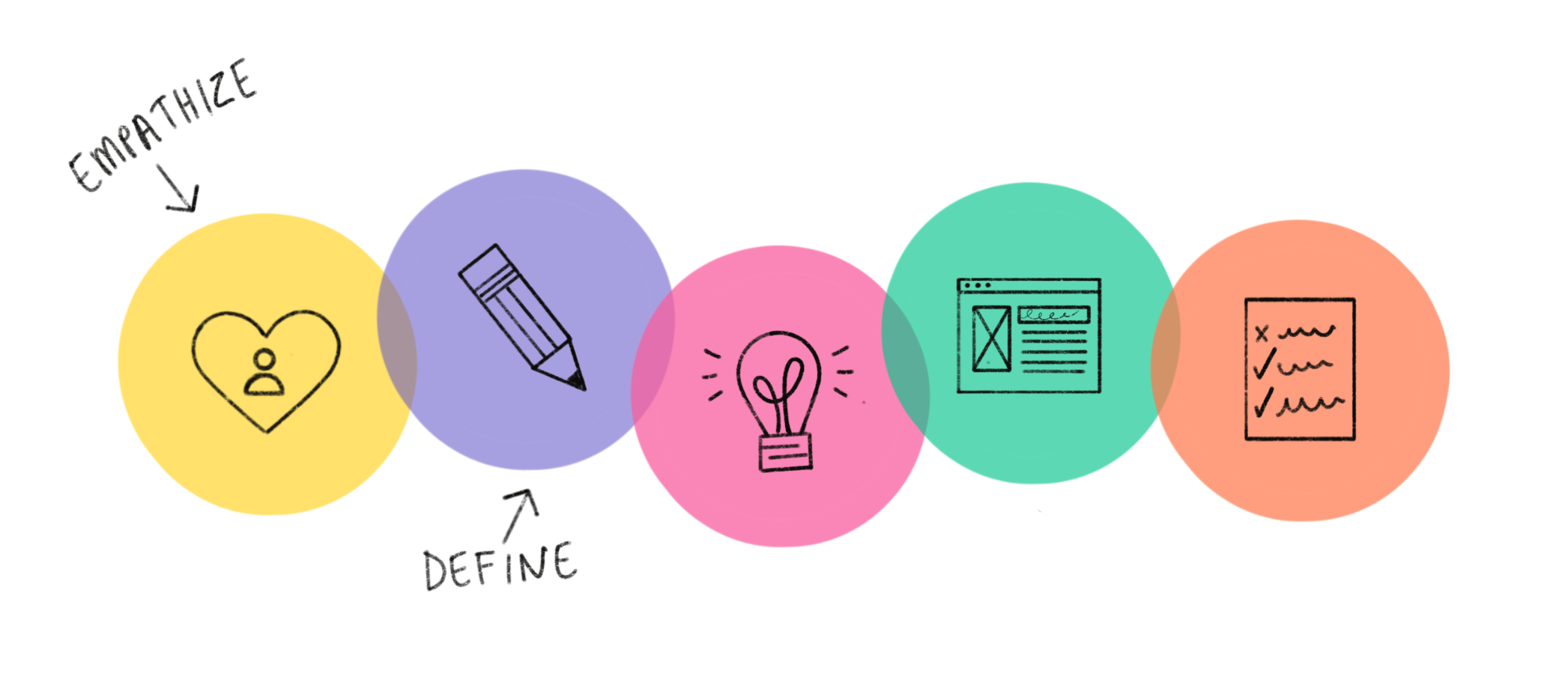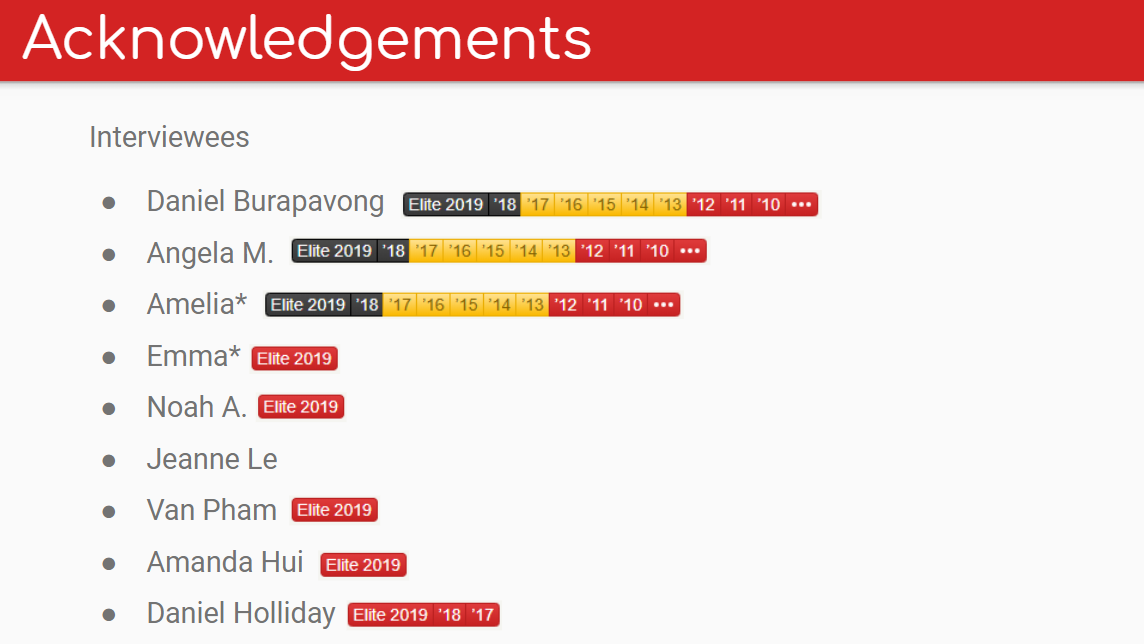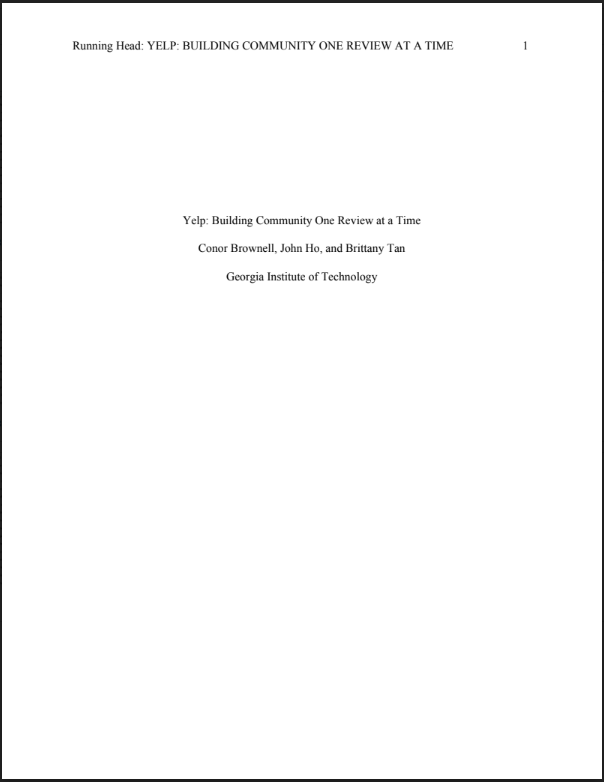
Yelp: Building Community One Review at a Time
This graduate paper is the combined effort of two undergraduate students and I that did a deep study into the online community of Yelp. This was for a course titled "CS 6470 - Online Communities" at Georgia Tech. Throughout the semester, we participated as active members of the Yelp community, interviewed 9 total members of various statuses, defined six major key takeaways from our qualitative research, and produced a 30+ page paper examining Yelp as an online community according to Amy Jo Kim’s nine design principles. We achieved a very high overall grade, and two of our members achieved Yelp Elite status. I went on to become a Graduate Teaching Assistant for this course in Spring 2020!
- Client:Georgia Tech Class Project
- Website:Paper Link
- Completed:April 26th, 2019

Background
Online communities has been studied for the past three decades for their fascinating nature. Some consider certain online communities as "third places", a social place outside of your home or work environments that one can walk into without much plan, but get the opportunity to chat and interact with people from around the globe. A popular example is Reddit and its vast array of sub-reddits available. Each one hosting a differnt topic, types of users, rules to follow, and community activity. Online communities have also continued to redefine itself over the years as technology is constantly growing. What was only considered posting on forums back in the MOOCs days to now online multiplayer games and even virtual reality social experiences are within the average person's reach. One can define what is an online community by employing Amy Jo Kim's nine design principles (2000), which is considered by many HCI researchers as the timeless principles for building community, even in the online world.
Goal
Yelp uses crowd-sourced reviews “to connect people with great local businesses” over both web and mobile. As of December, 2018, it hosts over 177 million reviews. One way it attracts people to write reviews is through the Elite program and in-person events offering free food. This paper will employ Amy Jo Kim’s nine design principles to analyze the construction and function of Yelp. The authors will also build on Gilbert and Karahalios’s work on deja reviewers. In so doing, this paper will examine six major research takeaways from the authors’ participant observation and interviews. These conclusions include motivation, review structure, mobile usage, areas of improvement, fake reviews, and comparisons to other crowd-sourced review sites.
Process
The authors performed over 30 total hours of participant observation on Yelp’s website
and mobile app. All authors wrote reviews of local restaurants they attended or have attended in the past and perused local reviews as well as Yelp’s Talk
section (a message board grouped by location). Two authors, Brittany and John, achieved Yelp
Elite status within a few months of active participation and contribution and were recognized as Atlanta Yelp Elites, granting the privileges of attending Yelp Elite events. Furthermore, Brittany
attended a local Yelp Elite event in person where she was able to socialize with other Yelp Elites
and broaden her Yelp friend network.
Amy Jo Kim's "Nine Principles for Community Design" outlines nine timeless design principles for community building which we employed each point and examined Yelp through the lens of these questions:
- Does it have a clear purpose?
- Does it have distinct, extensible gathering places?
- Does it have profiles that evolve over time?
- Does it promote effective leadership?
- Does it have a clear-yet-flexible code of conduct?
- Does it provide a range of roles with increasing involvement?
- Does it organize and promote cyclic events?
- Does it support member-created sub-groups?
- Does it integrate what’s online with the real world?

Each author interviewed three Yelp users for a time range of 30 minutes to an hour with an interview protocol tailored towards the Yelp experience. Conor interviewed Daniel Burapavong, Angela M., and Amelia.
Brittany interviewed Emma, Noah Andrews, and Jeanne Le. I interviewed Amanda Hui, Daniel Holliday, and Van Pham. These were all various members of the Yelp community recruited from nearby Atlanta to conduct an
interview. As you can see from our acknowledgements above, our sample population gathered verteran users, newer Yelp Elite users, as well as newcomers. If in person or via online video chat such as Google Hangouts if it was more convenient for the participant.
All interviewees were required to sign a waiver of consent for the interview, and all the interviewers like myself underwent Citi Training for RCR and Human Social/Behaviorial Research. All the interviews were then transcribed by hand with
the use of transcription software and then compared with other transcriptions to identiy common issues and concerns with regards to Yelp. Specifically, we adjusted our interview protocol to help dive deeper into the
nine principles for community design. This ultimately led us to six major key research questions:
- Motivation. What keeps members motivated to use the site?
- Reviews. Do members have a structure or format for writing reviews?
- Usage. Do members use the mobile app or website more?
- Areas of improvement. What are some aspects of Yelp that members think are lacking?
- Fake Reviews. Are fake reviews a frequent problem on Yelp and are they easy to spot and report?
- Comparison to other sites. How does Yelp compare to Google Reviews or TripAdvisor?
Results
Click the paper above to access our 30+ page graduate paper for a complete analysis of Yelp, its comparison to Amy Jo Kim's Nine Principles of Community Design, as well as answers to our six major research questions.
A 10 minute presentation was also given out in front of the whole graduate class with a powerpoint slide of our key points. We put effort into the visual design of the powerpoint such that it matched the aestheic of Yelp.
Overall, our project achieved a very high overall score and we were given praise being the only undergraduate group of students at the time who requested special permission to take the graduate level class.
You can find the link to our presentation slides here and the paper can also be found on the link at the very top of the page.
Summary
This was a very interesting and time consuming group project and final paper. All 3 of us were very involved with the Yelp community since day one and continued to be participants in order to understand the online community and empathize with users. We had to conduct qualitative research through extensive interviews in order to gather information that would help us construct our paper. Then from the transcripts we had to define six major research questions from our Yelp studies. I thoroughly enjoyed my first graduate level paper, and I actually went on to be a Graduate Teaching Assistant for this course in Spring 2020!
